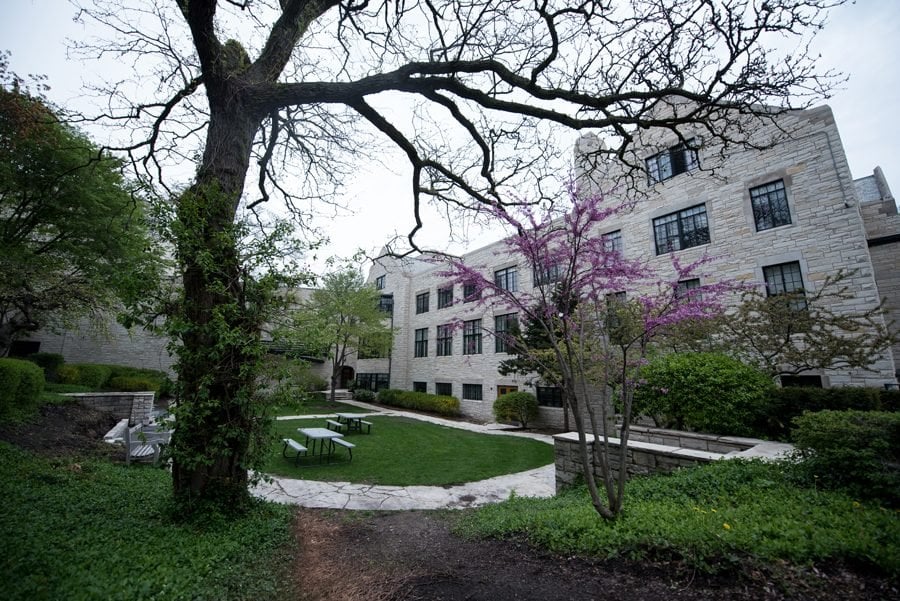Northwestern launches research collaborative to study impact of Evanston’s reparations ordinance
Daily file photo by Colin Boyle
Scott Hall. The Evanston Reparations Research Collaborative’s findings will provide historical documentation of the reparations process and be used to inform policy making in Evanston.
October 11, 2022
Northwestern established a research collaborative to study Evanston’s reparations ordinance, the first of its kind in the nation.
City Council passed legislation in March 2021 to utilize the first $10 million raised from a 3% tax on legalized cannabis sales toward a reparations funding program for Black residents who were at least 18 years old by 1969, as well as their descendants. In August, the council passed additional legislation to increase funds by as much as $3,450,000.
Evanston’s first program using the Evanston Local Reparations Fund is the Restorative Housing Program, created by the March legislation, which aimed to address the city’s legacy of discriminatory housing policies. The city announced in May that the first beneficiaries had chosen how to use their $25,000 in benefits.
The project, started by the University’s Center for the Study of Diversity and Democracy, is funded by the Lewis-Sebring Foundation. Political science Prof. Alvin Tillery, director of the center, will lead the project.
“We are at a moment where a large cross-section of the American public is now aware of how government-sponsored efforts to harm African Americans in the past translate into the racial gaps that we see in our daily lives today,” Tillery said in a Tuesday news release.
Evanston’s reparations efforts have prompted mixed responses. Reparations Committee members have emphasized that the Restorative Housing Program is just the first step in a larger effort, yet some local leaders have said that housing grants don’t constitute full reparations.
The Evanston Reparations Research Collaborative’s findings will document the history of the reparations process and be used to inform policymaking in Evanston.
Results from the collaborative will be released on the center’s website at the end of the 2022-23 academic year.
“My hope is that cities thinking of following Evanston’s lead will take a similarly introspective approach — looking at where the government caused or facilitated harms and making a direct effort to repair them,” Tillery said.
Email: [email protected]
Twitter: @PavanAcharya02
Related Stories:
— City Council allocates additional funding from cannabis tax to reparations program
— ‘There is more love somewhere:’ Evanston faith leaders unite to support local reparations fund
— Mayor Biss talks Evanston reparations, public safety in State of the City address












